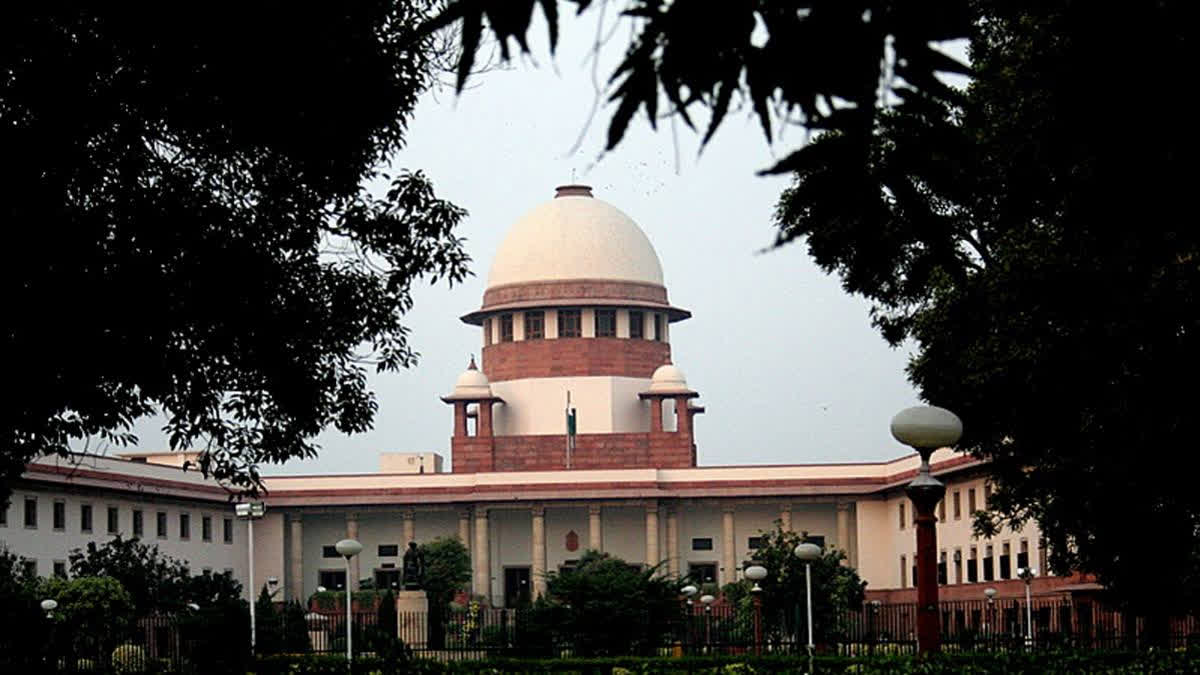New Delhi: In 2024, the Supreme Court delivered judgments which had wide-ranging ramifications and played a significant role in instilling people’s faith in the justice delivery system. In this year-end special, ETV Bharat has selected four judgments of the apex court and key developments in the judicial landscape, that have left a mark on 2024:
Government cannot take all private properties
In November, a nine-judge constitution bench of the Supreme Court, in a majority judgment, ruled that not every resource owned by private parties can be considered a “material resource of the community”, which the government could use to serve the “common good”.
The apex court’s verdict provided clarity on the interpretation of Articles 31C and 39(b) of the Constitution. These are crucial provisions in connection with the rights of individuals against the state’s authority to control resources for the public good. The apex court held that Justice V Krishna Iyer's previous decisions which declared that all privately owned resources can be acquired by the state, was motivated by a particular economic and socialist ideology.
The apex court said it would not subscribe to the expansive view adopted in the minority judgement authored by Justice Krishna Iyer in State of Karnataka Vs Ranganatha Reddy (1977) and subsequently relied on by this court in Sanjeev Coke Manufacturing Co Vs Bharat Coking Coal Ltd (1983).
The apex court said its role is not to lay down economic policy, but to facilitate the intent of the framers to lay down the foundation for an economic democracy.
The apex court stressed that not every resource owned by an individual can be considered a ‘material resource of the community’ merely because it meets the qualifier of material needs. The apex court stressed that the country’s economy has moved from majorly being a public investment to the co-existence of public and private investments.
SC’s big decision on bulldozer action
In a significant ruling the Supreme Court in November put the brakes on bulldozer culture, which majorly targeted the minority community. Echoing its concern on demolition of property as a punitive measure, against the alleged offenders, the apex court said it is a “chilling sight" when a bulldozer is used to hand out one of the harshest punishments: demolition of private property or homes of accused persons. The apex court bulldozer culture should be avoided even if there is no legal challenge.
The apex court deplored illegal demolitions and minced no words in criticizing the state's overreach in judicial matters. The apex court stressed that illegal demolitions, which also impact the family, are “nothing but an anarchy” and a “lawless state of affairs, where might be right”.
The apex court, using its power under Article 142 of the Constitution, issued a slew of guidelines for following due process before demolitions of unauthorised structures, which included 15 days’ notice for the residents on the property to find another place to live.
SC nixes electoral bond scheme
On February 15, the Supreme Court struck down the electoral bond scheme saying it was unconstitutional and manifestly arbitrary. The scheme was brought in 2018 as an alternative to cash donations made to political parties to bring transparency to political funding.
The apex court ruled that information about funding to political parties is essential for electoral choices and the anonymous electoral bonds violate the right to Information and Section 19(1)(a). The apex court said anonymous electoral bonds are violative of the right to information and Article 19(1)(a). The apex court said financial support to political parties can lead to quid pro quo arrangement and the electoral bonds scheme is not the only scheme to curb black money and there are other alternatives.
The apex court had asked the banks to forthwith stop issuing electoral bonds and asked SBI to provide all details of contributions made to date through the scheme to the Election Commission by March 6. The apex court directed the commission to share the information on its website by March 13.
